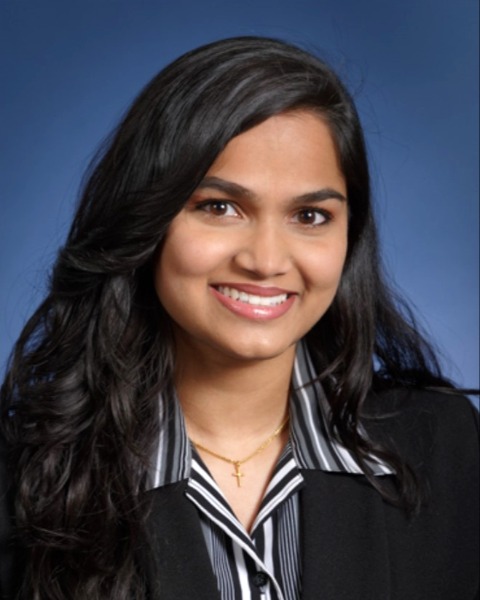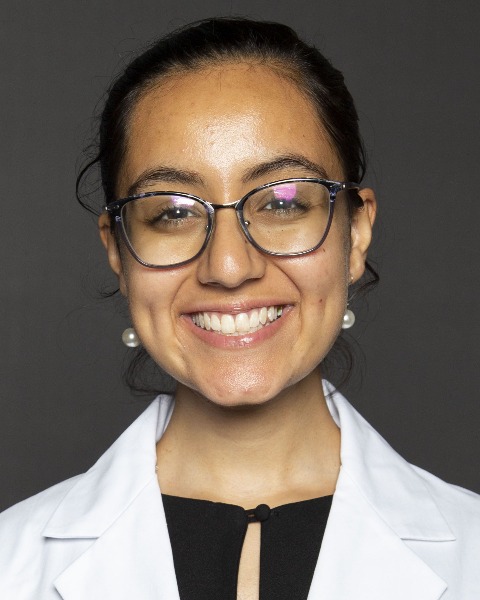Patient Experiences of Long COVID
.5 CME / .5 CME Clinical
This session presents how patients who were referred to an adapted integrative medical group visit program describe their experience with long COVID. Exploratory, qualitative data from semi-structured interviews will be used to describe the symptoms and illness experiences of long COVID patients in the Southeastern United States, detailing how symptoms have influenced patients’ lifestyles, activities, personal identities, and social relationships. The authors will discuss the emotions patients felt regarding these changes and their perspectives on the health care they have received. Complementary and integrative health care modalities utilized to support patients while navigating their long COVID symptoms will also be described, as well as patients’ attitudes towards them.
Learning Objectives:
- Identify characteristics of the long COVID illness experience.
- Describe the emotions long COVID patients express while developing and managing chronic symptoms.
- Assess long COVID patient satisfaction with care and the ways in which patients utilize complementary and integrative modalities to care for themselves.
- Explain how illness experiences, emotions, and behaviors presented within this session may be utilized to elicit greater multidisciplinary collaboration and higher quality of care for long COVID populations.
Presenters:
 Bethany Kavalakatt, BS, is a medical student at Lake Erie College of Osteopathic Medicine in Bradenton, Florida. She is an intern for the department of physical medicine and rehabilitation helping with integrative medicine group visits for chronic pain and long COVID patients. She has been a part of the team for more than a year. She received her Bachelor's of Science in Biological Sciences from California State University, Fullerton.
Bethany Kavalakatt, BS, is a medical student at Lake Erie College of Osteopathic Medicine in Bradenton, Florida. She is an intern for the department of physical medicine and rehabilitation helping with integrative medicine group visits for chronic pain and long COVID patients. She has been a part of the team for more than a year. She received her Bachelor's of Science in Biological Sciences from California State University, Fullerton.

Raveena Mata, MA, is a medical student at the Ohio State University College of Medicine. Prior to medical school, she studied Public Health and Medical Anthropology and conducted research on resiliency among refugees. This past summer, she participated in UNC-Chapel Hill's MSTAR (Medical Student Training in Aging Research) Program, where she explored patient experiences of Long COVID. She is excited to bring together her interests in qualitative research, integrative medicine, and optimizing patient experiences as a future physician.
Malik Tiedt, RYT, is an undergraduate student at the University of North Carolina at Chapel Hill majoring in public health, nutrition science, and medical anthropology. He has worked as a research assistant and registered yoga teacher for the UNC Program on Integrative Medicine since 2019. During this time, he has been involved in the delivery and adaptation of Integrative Group Medical Visits for populations with chronic pain, long-COVID, and breast cancer.
Credit Information:
Activity Created: 3/2023
Credits Expire: 3/2026
- .5 CME
- .5 CMD Clinical
Credit Statements:
CME: AMDA – The Society for Post-Acute and Long-Term Care Medicine designates this enduring material for a maximum of .5 AMA PRA Category 1 Credit(s)TM. Physicians should only claim credit commensurate with the extent of their participation in the activity.
AMDA – The Society for Post-Acute and Long-Term Care Medicine for Post-Acute and Long-Term Care Medicine is accredited by the Accreditation Council for Continuing Medical Education (ACCME) to provide continuing medical education for physicians.
CMD: This self-study activity has been pre-approved by the American Board of Post-Acute and Long-Term Care Medicine (ABPLM) for a total of .5 clinical hour(s) toward certification or recertification as a Certified Medical Director (CMD) in post-acute and long-term care medicine. The CMD program is administered by the ABPLM. Each physician should claim only those hours of credit actually spent on the activity.
ABIM Maintenance of Certification (MOC): This recording does not have MOC points.
Visit the Continuing Education page for information on if and how you can claim credit/hours for AMDA’s education.
Disclosure Information:
The Society requires the disclosure of all speaker/faculty/planner’s relevant financial relationships; presence of off-label use of a device or medication; and discussion of any experimental, new or evolving topic prior to each accredited education activity.
If the learner perceives any bias toward a commercial product or service, advocation of unscientific approaches to diagnosis or therapy, or recommendation, treatment, or manners of practicing healthcare that are determined to have risks or dangers that outweigh the benefits or are known to be ineffective in the treatment of patients please report this to the Society’s staff.
- Julie Gammack, MD, CMD (Planner & Speaker): Stockholder: Amarin
- Kenya Rivas Velasquez, MD, CMD, FAAFP (Planner & Speaker): OptumRx: Stockholder
- All other planners, speakers, and AMDA staff have no relationships with ineligible companies.
All relevant financial relationships have been identified and mitigated.